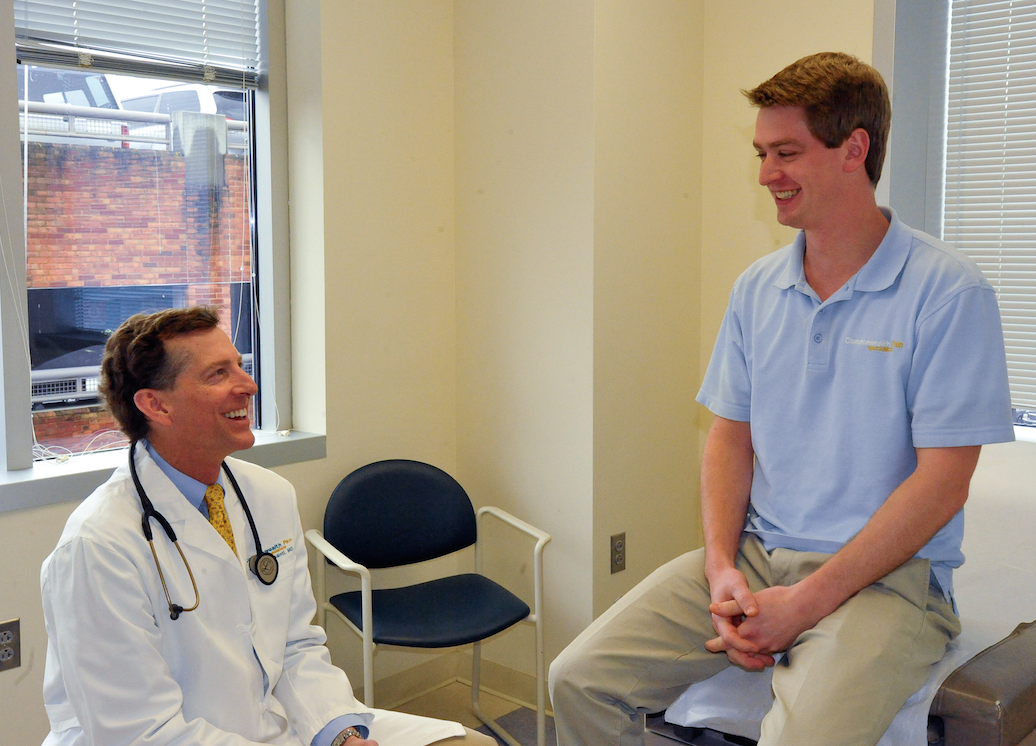 It’s no coincidence that we commonly refer to problems in our lives as “headaches.” How many times have you sat at your work computer rushing to meet deadlines — or paid a set of bills on the weekend — and noticed your head, neck and shoulders crying out for relief?
It’s no coincidence that we commonly refer to problems in our lives as “headaches.” How many times have you sat at your work computer rushing to meet deadlines — or paid a set of bills on the weekend — and noticed your head, neck and shoulders crying out for relief?
Almost all adults will experience a headache at some time. Stress often manifests as a tension type headache. Also known as stress or muscle contraction headaches, tension-type headaches affect between 20 and 40 percent of our population annually.
Diagnosis
A patient must exhibit at least two of the following four pain descriptors for a physician to diagnose tension-type headache:
- Bilateral location (both sides of head)
- Steady, non-throbbing head pain
- Mild/moderate intensity
- Severity either improved or not affected by physical activity
Most adults have “episodic” tension-type headaches, reporting headaches fewer than 15 days per month. If a patient has these headaches more than 15 days a month, the condition becomes a “chronic” tension-type headache.
Causes and Symptoms
Tension-type headaches frequently begin during the day and progress. Muscle tension, soreness or spasm are often experienced in the scalp or neck. Stress is widely accepted as a major contributing factor.
Sleep deprivation, skipped meals and dehydration may trigger or contribute to tension-type headache occurrences. In adults consistently using caffeine, either excessive caffeine use or caffeine withdrawal can bring on a headache.
Tension-type headaches are a common side effect of many prescription medications. Sometimes when pain-relieving medications are used too frequently, patients with tension-type headaches may develop daily medication-overuse headaches.
Treatment
To manage tension-type headaches, physicians recommend a combination of lifestyle, physical and medical approaches. Some tips include:
Lifestyle changes:
Moderate lifestyle changes can offer many benefits when trying to manage tension headaches. Making healthy diet choices and adjusting to a regular sleep schedule are good starting points as well as:
- Regulate meal and sleep times (avoid naps and skipping meals)
- Drink 40-60 ounces of water daily
- Limit consumption of alcohol, caffeine and artificial sweeteners
Stress management techniques:
Managing your stress is an important part of reducing the effects of tension headaches. Some stress management techniques include:
- Meditation
- Yoga
- Biofeedback training
- Relaxation
Musculoskeletal relief:
Often, tension headache sufferers can obtain relief of symptoms with regular musculoskeletal intervention such as:
- Professional or medical massage
- Neck stretches
- Physical therapy
- Frequent posture checks
- Breaks from seated positions
Exercise:
Exercise releases endorphins which are known to help reduce pain. Some beneficial exercises include:
- Walking, swimming or cycling
- Taking core-strengthening classes such as Pilates to improve posture
At Commonwealth Spine and Pain Specialists, our doctors are double board certified in both Pain Medicine and Anesthesiology, and offer many specialized headache pain management interventional techniques. We look forward to helping you manage your headache pain and improving your quality of life. Schedule your appointment today at (804) 288-7246.
